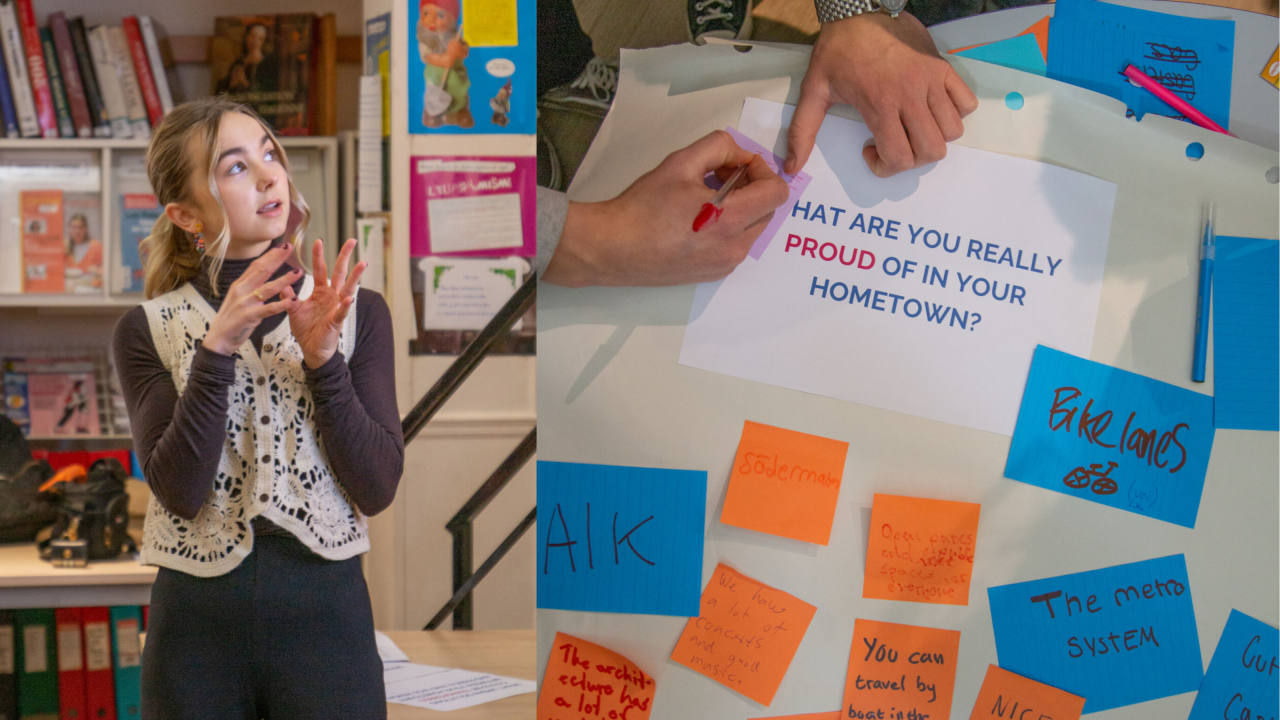During my time as an Interreg Youth Volunteer (IVY) with the URBACT programme, I’ve seen how involving young people in urban cooperation can transform abstract policy into something tangible, relatable, and even inspiring.
Here are some reflections from my experience interviewing, conversing and organising activities with young people during URBACT events.
Holding space for youth voices
In 2024, URBACT co-hosted a workshop as part of its contribution to the post-2027 EU Cohesion Policy consultation. Around 20 students, ages 15 to 25, were invited to the Agence nationale de la cohésion des territoires in Paris – where the URBACT Secretariat is based – to share their perspectives on how the programme could better respond to the needs of future citizens.
One key takeaway from workshop was that travelling to new cities prompts reflection and imagination when it comes to cooperation. Experiencing other places, in a sense, helps young people articulate what they value, what they would change, and what they might want to bring back to their own communities. The students also recognised that such opportunities are far from universally accessible.
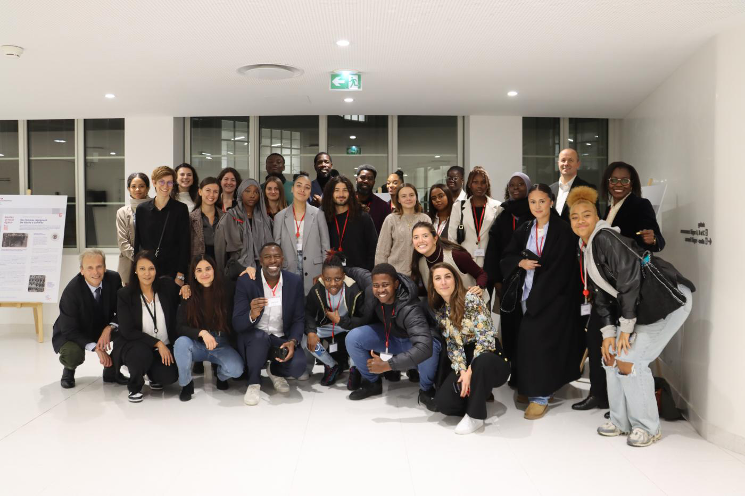
Motivated by these insights, I organised a Citizens Engagement Activity as part of my IVY mission, made possible with the support of the Association of European Border Regions. Together with colleagues from the URBACT Secretariat, we visited the Swedish High School in Paris, where we met with 40 students spending their year living and studying in a new city.
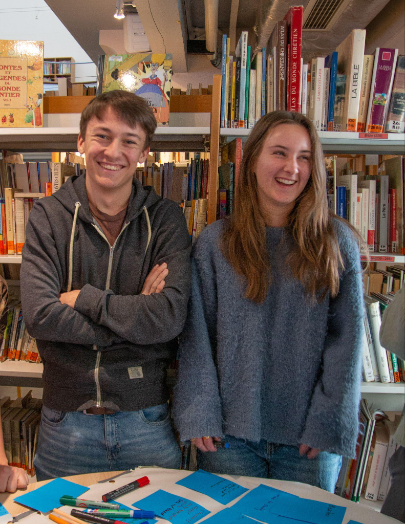
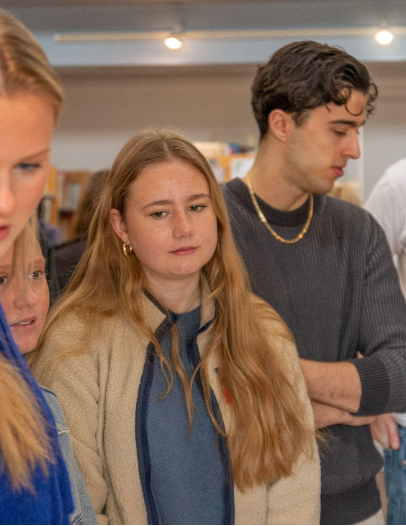
After a short introduction to URBACT and some of its networks, the students worked in small groups to co-create posters responding to three questions:
What are you really proud of in your hometown?
What inspires you in Paris?
What urban practices could be transferred between cities?
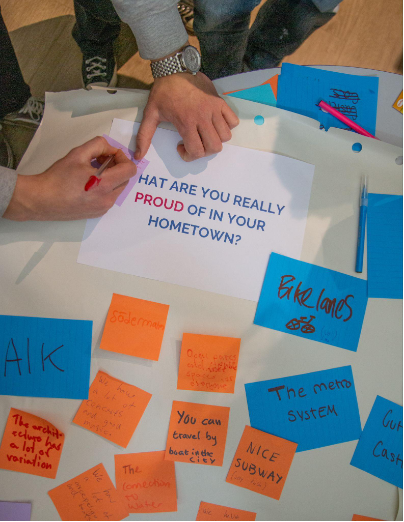 | 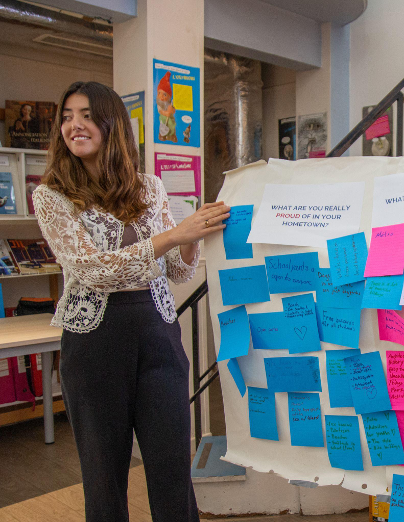 | 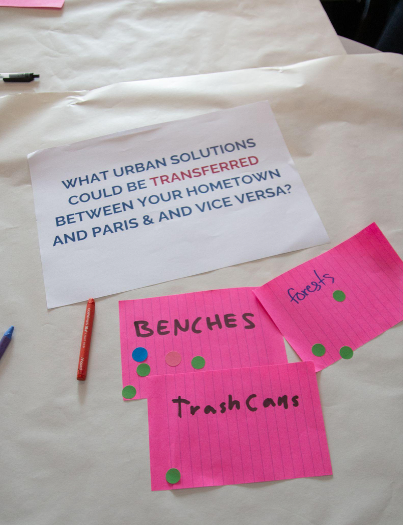 | 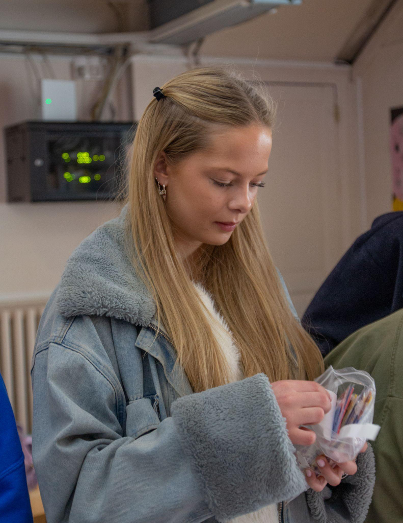 |
Discussions were energetic and rooted in personal experiences. Their position as both insiders and outsiders in Paris made their perspectives especially interesting. Students compared everything from public transport access and park opening hours, to how culture is embedded in public space. Some debated the value of benches as inclusive infrastructure that is conducive for taking a break but also creating connections. Others highlighted how public spaces can be both open and safe, rejecting the idea that one must come at the expense of the other.
From these discussions, one thing that really stayed with me was that young people instinctively seek cities that are both open and secure. For them, these values don’t seem to clash; in fact, the two can reinforce each other.
A city, they said, should not only be functional, but also safe and social, open and cared for – without assuming that this automatically creates a security risk. Speaking about schoolyards and public parks in Sweden, the students described how these spaces feel both accessible and safe. They also stressed the importance of well-lit public areas, benches, and clean surroundings as key to making cities more inclusive and welcoming.
If you want to know more about these topics, you can find further information at the URBACT Knowledge Hub.
Youth volunteers take the stage at the 2025 URBACT City Festival
Youth engagement was also a fixture of the 2025 URBACT City Festival, which took place in in Wrocław (PL) on 8-10 April. Students from a local foundation volunteered throughout the event. In addition to supporting logistics, they brought fresh perspectives to the session introducing the newly selected 116 URBACT Good Practices.
Speaking with the volunteers after the event only strengthened my belief in the power of experience as a way to make urban cooperation real for young people. It’s one thing to explain policy…it’s another to see it in action, to be a part of it.
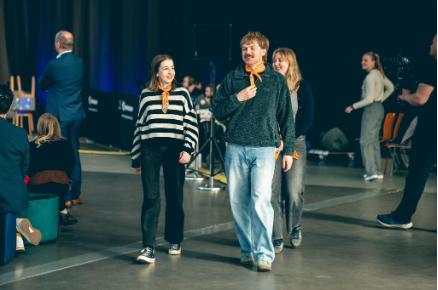
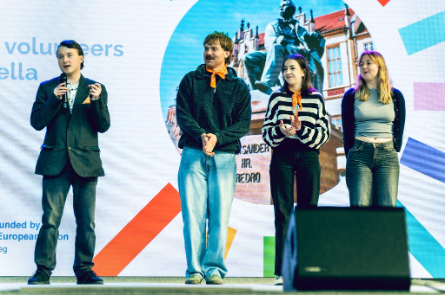
Looking forward: from experience to cooperation
When young people experience urban cooperation, they understand it. And when they understand the practices and policies involved, they can help improve them – not just for themselves, but for everyone.
While it may not always be easy to recreate experiences as immersive and eye-opening as the IVY Reporter experience at URBACT, introducing cooperation as a practice, not just a concept, already takes us a long way.
The challenge now is to keep finding ways, big or small, to make cooperation something young people can actively take part in, not just hear about.
If you want to support cooperation and communication among cities, apply now to become an IVY Reporter for the Interreg Programme URBACT, and help cities develop practical and sustainable solutions!
Submitted by Julia Moreau.

